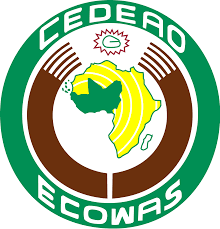The ECOWAS Community Court of Justice has rejected Nigeria’s preliminary objection in a human rights case involving a 72-year-old death row inmate who has spent three decades behind bars.
Justice Edward Asante, delivering the court’s ruling in Abuja on Thursday, dismissed Nigeria’s challenge to the court’s jurisdiction in the case of Mr. Ogueri, who has been held in a maximum-security prison under what advocates describe as deteriorating conditions.
“The court maintains jurisdiction over this matter as it fundamentally concerns human rights violations falling under Article 9(4) of the Court’s Protocol,” stated Justice Asante.
The Federal Republic of Nigeria had argued that the case was inadmissible and statute-barred. However, the court rejected these arguments, with Justice Asante explaining,
“The three-year time limitation outlined in Article 9(3) of the Court’s Protocol applies exclusively to extra-contractual liability cases involving the ECOWAS Community, not human rights claims against Member States.”
In a nuanced decision, the court addressed the scope of its authority, with Justice Asante noting, “While we are not an appellate court reviewing national courts’ decisions, we maintain jurisdiction to examine whether Mr. Ogueri’s alleged ill-treatment in prison violates Nigeria’s international obligations under the African Charter.”
The Explainer learned, the case marked ECW/CCJ/APP/13/21, initially involved two non-governmental organizations – the Centre for Peace and Conflict Management in Africa and Rethink Africa Foundation.
However, the court struck them off the case, citing their failure to demonstrate sufficient connection or representative authority.
“Both organizations failed to establish the necessary legal standing to bring this case before the court,” Justice Asante declared.
The NGOs had previously argued on behalf of Mr. Ogueri, seeking his immediate release and N55 million in compensation.
They claimed, “The prolonged incarceration under inhuman and degrading conditions has caused significant deterioration in the applicant’s health.”
The organizations had detailed allegations of extreme mental torture and degrading treatment, which they argued violated Ogueri’s rights under the African Charter on Human and Peoples’ Rights.
The three-member panel, which included Justice Ricardo Gonçalves as presiding judge and Justice Dupe Atoki as member, has now cleared the way for the hearing of the substantive case, focusing solely on Mr. Ogueri’s claims.























